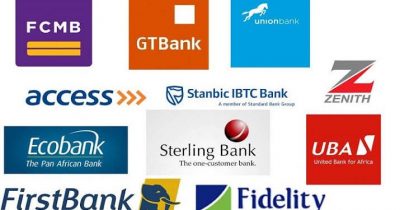Banks begin implementation of reduced charges
While some banks have notified their customers of the reduction in the new charges, some others are yet to do so.
First Bank disclosed its compliance in a notice on reduced charges on its electronic banking channels to customers.
It stated, “Following the CBN’s revised guide to charges by banks, other financial and non-bank financial institutions, charges on our electronic banking channels have been reviewed downwards and would take effect from 1 January, 2020.”
Fidelity Bank Plc also stated in a notice to its customers that “in line with the Central Bank of Nigeria’s directive to implement provisions in the revised guide to bank charges, we wish to inform you about the reduction in charges for the following transactions effective January 01, 2020.”
In furtherance of its quest to make financial services more accessible and affordable to various stakeholders in the economy, the CBN recently reviewed downward most charges and fees for banking services as contained in the new guide to charges by banks, other financial, and non-bank financial institutions, with effect from January 1, 2020.
The Director, Corporate Communications at the CBN, Isaac Okorafor, explained some of the major highlights of the new guide on the bank charges to include the removal of card maintenance fee on all cards linked to current accounts.
He said it included a maximum of one naira per mille for customer-induced debit transactions to third parties and transfers or lodgements to the customers’ account in other bank on current accounts only, and a reduction in the amount payable for cash withdrawals from other banks’ Automated Teller Machines (remote-on-us) as well as from N65 to N35, after the third withdrawal within one month.
Other reductions are Advance Payment Guarantee, which was pegged at a maximum of one per cent of the APG value in the first year and 0.5 per cent for subsequent years on contingent liabilities.
On debit card charges, Okorafor stated that the new guide stipulated that a one-off charge of N1,000 applied to the issuance of cards, irrespective of card type (regular or premium).
The same one-off charge of N1,000 applied for the replacement of debit cards at the customer’s instance for lost or damaged cards.
He added that upon expiry of existing cards, customers were to pay the same one-off charge of N1,000 irrespective of card type. Conversely, no charge should be required for pre-paid card loading/unloading.
He explained that the current NIP charges applied to use of Unstructured Supplementary Service Data, purchase with cash-back would attract a charge of N100 per N20,000 subject to cumulative N60,000 daily withdrawal.
Also, for cards linked to savings account, the maintenance fee was reduced to a maximum of N50 per quarter from N50 per month, amounting to only N200 per annum instead of N600.
He said that there will be no more charges for reactivation or closure of accounts such as savings, current and domiciliary accounts.
Status enquiry at the request of the customer (like confirmation letter, letter of non-indebtedness and reference letter) would now attract a fee of N500 per request, he said.
On current account maintenance fee, he said the guide stated that this would be applicable only to current accounts in respect of customer-induced debit transactions to third parties and debit transfers and lodgements to the customer’s account in another bank.
According to him, it was not applicable to savings accounts.
The director said the CBN carried out the review of the guide, which also prescribed charges permissible for other financial institutions and non-bank financial institutions, in order to align with market developments. (Punch)


